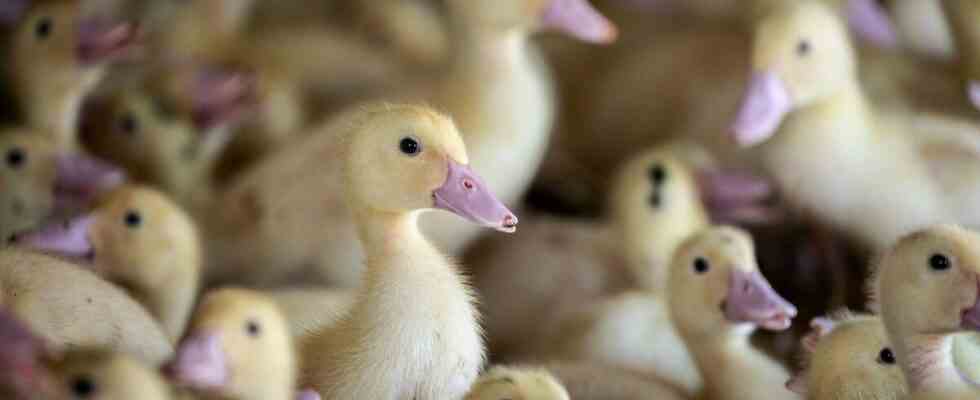Farms without duck or poultry from Thursday, for one month, in 68 municipalities in the Landes, Pyrénées-Atlantiques and Gers. This is what provides an unprecedented crawl space supposed to stem the epizootic of avian flu in these departments. This “Adour Plan”, launched at the initiative of inter-professional organizations such as Cifog (foie gras) and Anvol (broiler), requires that between December 15 and January 15, the municipalities of these three departments of Sud-Ouest, affected by a high animal density, are “emptied” or almost of their poultry.
Struck by four successive waves of the disease, the breeders came to the conclusion “that there were too many birds together in the same place, at the same time”, explains Marie-Pierre Pé, general manager of Cifog. With a peak of tension on December 15, “a moment of systematic runaway”. Thanks to this anticipated depopulation, professionals, aware that they cannot “avoid” the introduction of the H5N1 virus, hope to avoid its spread. “We cannot have a fire that we do not control”, sums up the president of Cifog.
Self-sufficient farms where the duckling does not come out
The Adour Plan, accompanied by compensation announced by the government, is expected as a “resilience tool to get through the winter” and avoid the millions of slaughters of the last epizootic. According to a census by the Ministry of Agriculture, around 21.8 million animals (palmipeds and poultry) were euthanized in France from August 2021 to May 2022.
The exceptionally early resurgence of the epizootic this summer, with 164 outbreaks in breeding recorded since August 1, has already led to nearly 1.3 million slaughters, according to the latest official figures. No case has been reported for the time being in the farms of the three departments concerned by the Adour Plan. At the same time, an experiment conducted by the Directorate General for Food is expected in early 2023 within so-called autarkic farms, with low densities.
In this production model, the duckling no longer leaves the farm until it is transformed into a finished product. “We are not spreaders of the virus”, estimates Julen Perez, breeder in the Basque Country, affected by the slaughter of all his ducks in January 2022. “Pilot” farms in autarky will thus be selected to study their functioning and interactions. with the environment, “in the face of a virus that has become endemic”, underlines the breeder.

